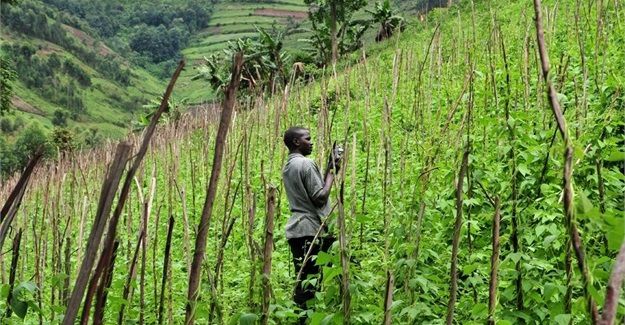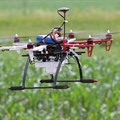East Africa: Technology helping East Africa unlock agriculture potential

The sector is responsible for 83.9% of imports and 80% of total employment in Ethiopia alone. Technology-led transformation promotes good business practice and encourages farmers to work collaboratively. On a larger scale, aerial images from satellites, weather forecasts and soil sensors are making it easier to manage crop growth in real time.
Successful ventures have the potential to open up huge markets and are attracting investors from around the globe.
According to African Tech Start-ups Funding Report 2017, agritech startups across the continent raised a combined total of $13.2m last year. Not a huge amount, but certainly an increase on the $50,000 raised in 2015. It is a sector that has suddenly, and quite dramatically, sprung up.
Helping the region become more tech-savvy
Adding efficiency to the supply chain is only possible when farmers work as a large team and not small groups. In order to bring these people together, the right information needs to be shared openly and on a consistent basis. Companies such as Kenya's HSBS are developing apps available to access via the internet, smart phones or a simple sms. These include real-time growing news, historical data, payment solutions, HR solutions and even marketing.
"Farming has changed drastically in the 21st Century," said Scott Vaver, CEO of HSBS. "For agriculture to improve in East Africa we need to promote good business skills and make use of the IT channels available. This will help the region grow and become more tech-savvy."
Educating university students on good agribusiness is well underway. A number of programmes are in place focused on removing the negative stigma attached to agriculture. Africa's GDP is dominated by farming so teaching the right expertise now will add huge value. Job opportunities are available in marketing, logistics, administration and management. Giving young farmers an option to purchase and sell through a cooperative is an incentive and promotes social change.
Improving agribusiness through technology
For East Africa to develop, it needs to focus on improving agribusiness through technology and not simply subsistence. Planning for the future is the only way to encourage growth, eradicate food wastage, improve poor sales and simplify haphazard supply chains. Just like in banking, where mobile technologies have become essential, agriculture must follow suit.
Entrepreneurs across East Africa are seeing the potential in developing new IT systems. Wanda Organic is a Kenyan startup providing bio-fertilisers to small and medium-sized farmers. Clients can order products by sending a simple sms with their phone. The company works with commercial businesses to improve efficiency while ensuring value for stakeholders at the same time. The results are evident.
"Productivity from my fruit trees have improved greatly," said Riya Allen, a Wanda Organic client. "Access to fertiliser is faster than it has ever been and it's all at the touch of a button. My prices are good and demand has increased in the market."
By encouraging smallhold farmers to work with other plantations, profitability will increase. Cooperatives can collectively purchase sowing seeds, fertiliser and animals. Sharing knowledge is made a lot easier with the right technology as is access to funding and investment. Information about real-time pricing allows farmers to decide whether to buy or hold, and identify the best crops to grow. Micro-finance in agribusiness has come on leaps and bounds in the last decade and a number of startups are giving people quick access to the support they need.
Proper access to financing
One such company is ProducePay. Founded at Cornell University in 2014, this supply chain startup aims to fix cash-flow problems by paying for the product the day after it is shipped, rather than the typical 30-45 day waiting period. It also offers a trading platform where goods can be bought and sold at a better price.
"The world is facing increasing pressure to answer food demand," said Pablo Schwarzbeck, CEO of ProducePay. "The lack of proper access to financing is one of the premiere inhibitors of farm growth, yet it's one of the least addressed. We are confronting this challenge by creating the first ever means of securitising fresh perishable produce as a financial asset through the use of technology."
Smart phones are at the forefront of innovation and their ever-increasing affordability is connecting more and more farmers to valuable resources. Through various platforms and social media applications, workers can access education about a range of agricultural topics. In addition, farming communities can communicate with each other about best practices. Translation services on web browsers give people information in their language.
Weather information and geographical data
Weather and climate has always been an issue for Africa's agricultural sector and the major benefit of connectivity is availability of weather information and geographical data. Soil conditions can be monitored via a mobile phone or computer. Farmers can use this information to determine what to grow and when to harvest crops. People can also access news about the length of the growing seasons for crops, and the risks (e.g. droughts, floods, and extreme storms) they might encounter. Geographic data provides valuable data on pests and animal diseases.
Agriculture is one of the largest industries but also the most untapped by technology. It's a huge market that touches just about everyone so opportunities are endless. The Food and Agriculture Organisation (FAO) predicts the size of the market in Sub-Saharan Africa will grow to $1tn by 2030. Scalable, digital platforms could run at 50-100% annualised growth rates over the next three to five years.
Turning aerial imagery into information
Aerial imagery is another area making strong headway through developing technology. Although it has been around for decades, up until now the service hasn't provided any real value. Farmers need to know why certain crops are weak, and not just where. Thankfully, a number of new advancements are turning aerial imagery into information that can be analysed to predict future outcomes. Growers can select how frequently they would like to receive analysed images each month, and pay according.
Clearly there are more pressing issues than just technology to be addressed in East Africa's agriculture sector. At the same time, new concepts like precision farming, crop efficiency and vertical farming bring a breath of fresh air to the field. Real problems are being tackled head-on. Funding is increasingly available and without doubt, digital technology has the potential to innovate all parts of the food system in a very good way.
Read the original article on EA Business via AllAfrica.com.
Source: allAfrica

AllAfrica is a voice of, by and about Africa - aggregating, producing and distributing 2000 news and information items daily from over 130 African news organisations and our own reporters to an African and global public. We operate from Cape Town, Dakar, Lagos, Monrovia, Nairobi and Washington DC.
Go to: http://allafrica.com/













